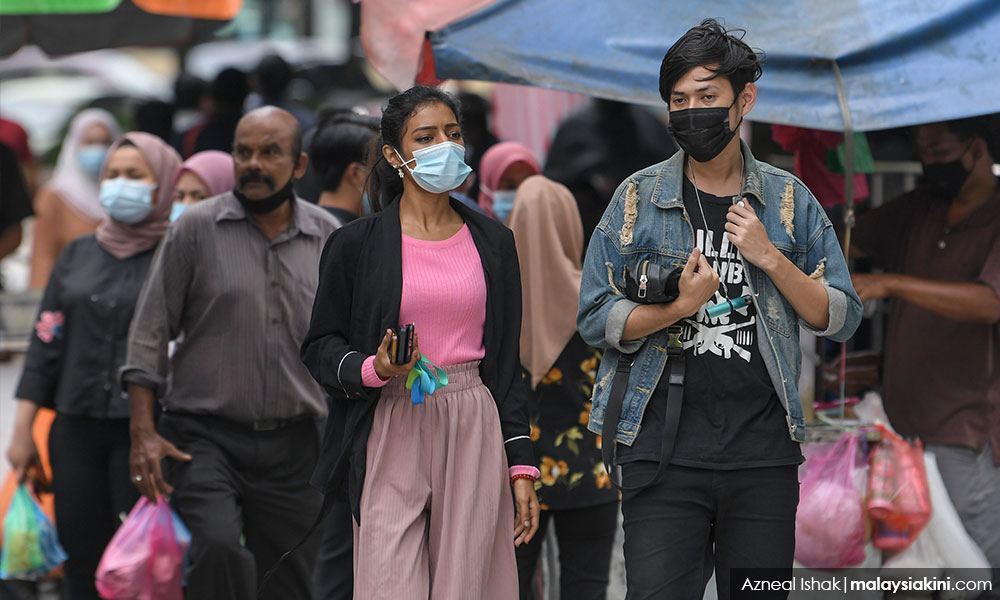MP SPEAKS | We have witnessed the devastating consequences of Covid-19 over the last two years. There has been a shocking number of deaths, job losses, suicides and poverty.
The victims of the pandemic are the B40 and lower M40 communities plus micro businesses, whose financial status is significantly worse off compared to 2019.
But have we addressed these crucial issues in the 12th Malaysia Plan (12MP)? Definitely not but it certainly reveals a remarkable story of tone-deaf politicians who still believe they can gloss over facts with cute words and get away with it.
Prime Minister Ismail Sabri Yaakob, in his speech, focused on the concept of Keluarga Malaysia and Shared Prosperity. But stopped short of outlining how poor Malaysians could benefit from this prosperity.
In the last two years, the country’s social protection system was inadequate and ineffective in responding to job losses, loss of livelihood and income during the pandemic.
A little bit of research would have shown that some 580,000 M40 households slipped into the B40 category. The income distribution for these two groups declined while the rich (T20 group) saw an increment of 0.4 percentage, owning 47.2 percent of total income.
Labour market
Workers were forced to withdraw from their EPF savings as part of government efforts to supplement their income during the crisis. EMP says that 46 percent, or 7.32 million EPF members, below the age of 55, have less than RM10,000 in their accounts.
Unicef’s ‘Families on the Edge’ reported that low-income families had to cut down on food intake due to job losses and as income dropped. A good number had to manage with fried rice with eggs.
Data from the Department of Statistics Malaysia shows that, in the second quarter of 2021, about 143,500 in the 45-64 age group lost their jobs. And 283,000 between the ages of 15-24 became unemployed in the same period.
Despite such gloom, the 12MP, which is a comprehensive outline of government development policies and strategies, has failed to re-think social protection and make it the key policy to drive the nation forward to ‘build back better’ in a post- Covid-19 environment.

A robust social protection system aims to reduce poverty, inequality and vulnerability in the labor market. In addition, it is designed to boost human capital, empower women and respond to economic uncertainties.
Amend law
Investing in social protection can create domestic demands and generate large positive multiplier effects on the economy and support social and political stability.
Thus, we propose that the government consider the following:
- Register and establish an insurance scheme for informal workers
Most informal workers who have been laid off have not received financial support as compared to the workers in the formal sector. The government, therefore, needs to amend the law and establish an employment insurance scheme for informal workers as a way of providing them with income security.
- Revamp the Bantuan Sara Hidup (BSH)
The government should also revamp the existing Bantuan Sara Hidup (BSH) programme by providing an urgent RM1,000 monthly cash transfer to the absolute and hardcore poor households, including groups who have lost their jobs during the pandemic.
- Job guarantee
The government can reduce unemployment by introducing a job guarantee scheme, where it provides funds to employers, professional groups, NGOs and trade unions to hire unemployed persons. And recipients of the fund must undergo skills training. In this way, the government ensures the people can find their way back into the labour market.
- Review minimum wage
The government should review and implement a new minimum wage system supported by a separate fund to help reduce the burden of SMEs, which are hit by the pandemic. It should allocate an annual fund of RM15 billion during the transition period towards the effort.
Clearly, the Covid-19 pandemic has exposed wide gaps in Malaysia’s social protection system, with many individuals and businesses falling through the cracks.
Keeping this in mind, the government must look into an inclusive system which narrows poverty and addresses vulnerability.
Or Keluarga Malaysia and Shared Prosperity will remain pleasant and eye-catching only on paper.
CHARLES SANTIAGO is MP for Klang.
The views expressed here are those of the author/contributor and do not necessarily represent the views of Malaysiakini.

